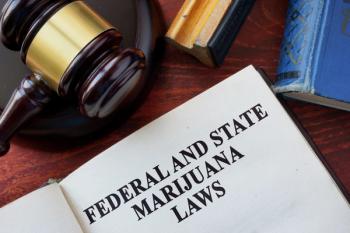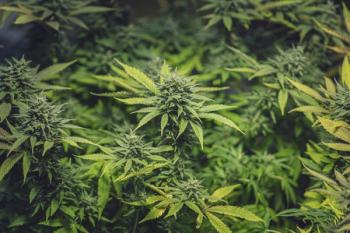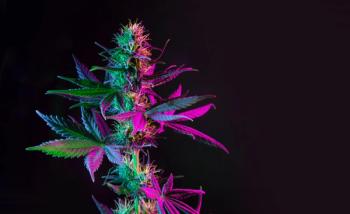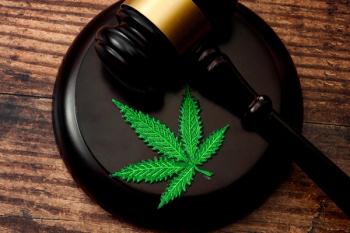
- Drug Topics November 2020
- Volume 165
- Issue 11
CBD: A Look at the Legal Landscape
Although the booming demand can make CBD products a profitable addition to any pharmacy inventory, some questions remain about the legal compliance factors.
Although the booming demand can make CBD products a profi table addition to any pharmacy inventory, some questions remain about the legal compliance factors when carrying CBD products in the pharmacy.
CBD oil and CBD-infused products first began to appear on pharmacy shelves after the passage of the federal Agriculture Improvement Act of 2018, also known as the Farm Bill, which declassified hemp as a Schedule I drug under the Controlled Substances Act (CSA). By 2019, both independent pharmacies and pharmacy chains such as CVS and Walgreens were selling a variety of CBD products. However, these products are regulated by a tangle of federal and state regulations that can be challenging to decipher.
“The main thing to know is that the federal 2018 Farm Bill removed hemp (defined as less than or equal to 0.3% THC) from the definition of ‘marijuana’ in the Controlled Substances Act, and hence from the prohibitions of that act,” said Mark K. Osbeck, JD, clinical professor of law, legal practice program, at the University of Michigan in Ann Arbor, and coauthor of Cases and Materials on Marijuana Law.
Although CBD derived from hemp gained a significant measure of legal protection in 2018, hemp-derived products are still subject to active regulation by the US Department of Agriculture and the FDA. The Farm Bill specifically provides that states may pass more restrictive regulations of their own, though they cannot interfere with the flow of interstate commerce in hemp.
“Accordingly, several states have made hemp and CBD illegal, meaning it can pass through the state, but it cannot be sold or grown in that state,” Osbeck said.
So, can you safely carry CBD products in your pharmacy? It depends. According to Kurt Proctor, RPh, senior vice president of strategic initiatives at the National Community Pharmacists Association (NCPA), the legality of CBD products varies according to the composition of the products, the jurisdiction where the products are being sold, and how the products are being marketed.
“Pharmacists are encouraged to confirm with their applicable board of pharmacy, the FDA, and any other governing bodies,” Proctor said.
Although several states have legalized CBD oil for medicinal purposes, and others permit medical and/or recreational use of marijuana (which includes hemp-derived products), states may have different regulations governing sales.
“Every state has an equivalent of a bureau or department of cannabis control, and their websites will answer many of these questions,” said Robert Solomon, JD, clinical professor of law at The University of California, Irvine, School of Law, and cochair of the UCI Center for the Study of Cannabis.
Research into the therapeutic possibilities of hemp-derived medicine is ongoing, but to date the FDA has approved only 4 hemp-derived treatments for US distribution: nabilone (Cesamet), cannabidiol (Epidiolex), and tetrahydrocannabinol (Marinol and Syndros).1 Pharmacists can safely dispense these medications if they comply with the federal and state requirements, such as registering with the Drug Enforcement Administration (DEA).
The approved uses of these hemp-derived treatments—combined with the increasing presence of CBD in OTC products—might suggest that all uses of CBD oil are permitted. Yet under the Federal Food, Drug, and Cosmetic Act and the Public Health Service Act, the FDA does not permit the addition of CBD to food, beverages, or cosmetics, or allow it to be sold as a dietary supplement. “The Farm Bill did not affect the FDA’s jurisdiction over drugs, supplements, food additives, and cosmetics,” Osbeck said. “According to the FDA, CBD cannot be included legally as a food additive because the FDA has approved Epidiolex, whose active ingredient is CBD, as an approved drug for the treatment of childhood seizure disorder, and food additives may not contain FDA-approved drugs. The FDA has also not approved CBD as a drug. And its position with respect to designation as a supplement is that CBD does not meet the definition of a supplement because it contains an approved drug.”
If CBD oil were an FDA-approved supplement, the required labeling would have to list ingredients and dosage information. To that end, Rep Kurt Schrader of Oregon and Rep Morgan Griffith of Virginia filed H.R. 8179, known as the “Hemp and Hemp-Derived CBD Consumer Protection and Market Stabilization Act of 2020,” in the House of Representatives.3 The bill proposes that hemp derivatives be regulated and sold as a dietary supplement, with accurate FDA-required labeling. However, as Osbeck noted, defining CBD as a supplement, when CBD is already an ingredient in an approved drug, may be complicated.
Because CBD products are not regulated, pharmacists must exercise caution when promoting claims about the often-touted, but as yet scientifically unsubstantiated, benefits. CBD oil has been cited as a remedy for a variety of conditions—including anxiety, acne, and arthritis— but until more testing is done, the claims remain anecdotal.
“There are significant risks associated with making claims of medical efficacy with respect to CBD, whether such claims ultimately turn out to be true or not,” Osbeck said. “The FDA regulates as drugs substances about which health claims are made, and therefore such claims are subject to FDA approval following appropriate clinical tests. Thus, any claims about CBD’s efficacy absent such approval are deemed unsubstantiated, and therefore [they] violate FDA regulations.”
What does this mean for pharmacists? To date the FDA has done little to crack down on unsubstantiated claims by pharmacists, but it has issued a number of warning letters to manufacturers and marketers who make some of the boldest claims (for example, that CBD can fight cancer). However, there is no assurance that in the future pharmacists will be safe from the repercussions of making unproven claims.
Any claims regarding CBD products or benefi ts may lead to private lawsuits from consumers or investigations from regulating bodies,” Proctor said.
Safety is always a concern in products not vetted by the FDA. Since CBD oil contains both pharmacodynamic and pharmacokinetic properties, using CBD products can prompt interactions with other common medications, including immunosuppressives, antidepressants, and blood thinners. In some cases, a combination may have adverse effects.4
Proctor suggests that pharmacists encourage patients to confi rm any CBD usage with their physicians. “Pharmacists should also inform customers that CBD products are not intended to prevent, diagnose, treat, mitigate, or cure diseases or disorders,” Proctor said.
Because state and national regulations governing hemp-based products don’t necessarily synchronize, pharmacies that stock CBD products can potentially face closer scrutiny from the DEA, which can lead to increased pharmacy audits and inspections. In addition to the usual compliance measures that pharmacies adopt, pharmacies that fill CBD prescriptions, if they are legal under that state’s laws, should adopt measures specific to CBD compliance. Failure to comply with applicable laws can leave pharmacists vulnerable to substantial fines and, potentially, criminal prosecution.
“I think the takeaway is that CBD is sold in most states and is legal, subject to state regulations, under the laws of those states,” Osbeck said. “And while CBD derived from hemp is no longer an illegal substance under federal law, it is still subject to federal regulation. Thus, sellers assume certain risks when they market CBD in violation of these federal regulations, particularly when they make unsubstantiated claims about the safety or efficacy of CBD.”
If a pharmacy decides to carry CBD products, there are ways to determine the most reliable sources. “Pharmacists should pay attention to enforcement actions taken against companies with misleading or false labels and seek out products that have been independently verified by third party sources,” Proctor said. “Pharmacists can visit ncpacbdsource.com for CBD products that have been independently tested to confirm the accuracy of the labels and ingredients.”
References
1. Dorbian I. CBD Market Could Reach $20 Billion By 2024, Says News Study. Forbes. Published May 20, 2019. Accessed September 18, 2020.
2. FDA. FDA and Cannabis: Research and Drug Approval Process. Last updated October 1, 2020. Accessed October 1, 2020.
3. Hoover A. Despite trends, feds still band CBD in food. These bills seek to change that. NJ.com. Published September 15, 2020. Accessed September 28, 2020.
4. Brown JD, Winterstein AG. Potential adverse drug events and drug-drug interactions with medical and consumer cannabidiol (CBD) use. Journal of Clinical Medicine. 2019. https://www.ncbi.nlm.nih.gov/pmc/articles/PMC6678684/
Articles in this issue
about 5 years ago
Inpatient Pharmacy-Based Pain Management Service Improves Outcomesabout 5 years ago
Cancer Care In Transitionabout 5 years ago
Boosting Business With CBDabout 5 years ago
Cannabidiol (CBD) 101: Overview and Potential Interactionsabout 5 years ago
Use This Checklist To Select Your CBD Productabout 5 years ago
Educate Patients About Affordable, Accessible Insulin Optionsover 5 years ago
Improving Pharmacist-Physician Collaborationover 5 years ago
How Pharmacists Can Make the Most of Their Technician's SkillsNewsletter
Pharmacy practice is always changing. Stay ahead of the curve with the Drug Topics newsletter and get the latest drug information, industry trends, and patient care tips.























